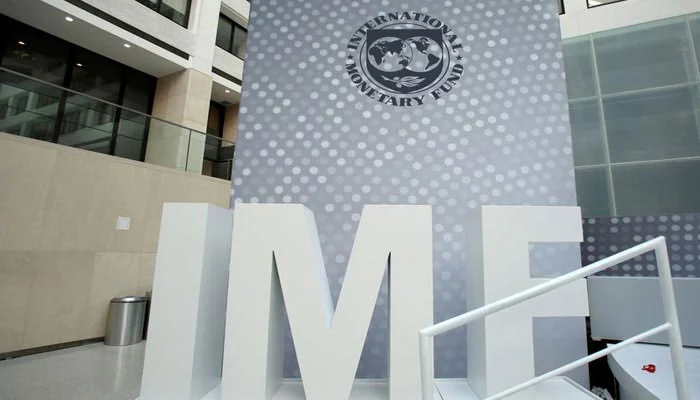- Pakistan, IMF will kick-start toughest ever parleys from today.
- IMF is asking govt to fill Rs600bn on fiscal front.
- National Austerity Committee suggests all ministries slash expenditures.
ISLAMABAD: In order to break the deadlock with the International Monetary Fund (IMF) and pave the way for striking a staff-level agreement, the government is expected to share its plan with the visiting review mission for taking additional taxation measures, The News reported Tuesday.
The discussion will revolve around Pakistan’s plan for taking additional taxation measures to fetch over Rs200 billion through the Presidential Ordinance, rationalising expenditure, and hiking both electricity and gas tariffs for erasing the monster of the circular debt.
The IMF’s review mission led by Nathen Porter arrived in Islamabad on Monday and now both sides would kick-start toughest ever parleys from today (Tuesday) for making renewed efforts to accomplish the pending ninth review under the $7 billion Extended Fund Facility (EFF).
The Washington-based lender is suggesting the toughest prescriptions on all fronts of the economy at a time when the foreign exchange reserves are persistently on the decline and touched the lowest ebb of $3.6 billion.
Although, the government had already implemented two major conditions including allowing adjustment of the rupee against the dollar and hiking record levels of a surge in petroleum prices ahead of kick-starting parleys with the IMF.
The IMF is asking the government to fill the yawning gap of Rs600 billion on the fiscal front through additional taxation measures or cutting down on expenditures in order to restrict the budget deficit and primary deficit within the desired limits.
Differences persisted over the exact fiscal gap and both sides will hold parleys to evolve consensus over the exact estimates for taking additional taxation measures through the upcoming mini-budget.
Pakistan and the IMF will hold technical-level talks from today to Friday and then the policy-level talks will commence finalising the Memorandum of Financial and Economic Policies (MEFP) document.
The IMF further demanded an increase in electricity tariff within the range of Rs12.50 per unit as Islamabad seemed to agree to hike the electricity tariff of Rs7.50 per unit in a staggered manner.
The government may be agreed to withdraw the un-targeted power sector subsidies of the electricity and gas sector to powerful groups during the upcoming parleys with the IMF. The gas tariff will also be hiked in the range of 74% for consumers.
“We will have to swallow bitter pills because the gap widened so much that now the economy cannot run with the approach of status quo. The country’s middle class will have to face the burden.
“We have made a plan to protect vulnerable and poor segments of the society while implementing the IMF conditions” top official sources stated while talking to a select group of reporters on Monday night.
The senior officials in a background discussion stated that the government wanted to insulate the poorest of the poor from swallowing bitter pills as the government would make all-out efforts to focus on two areas including introducing reforms and protecting poor and vulnerable segments from arising inflationary pressures.
The official said that Finance Minister Ishaq Dar was trying to secure $4-5 billion from bilateral friends for engaging the IMF with the point of strength but it could not be materialised so there was no other option but to make renewed efforts to revive the stalled IMF programme.
The Federal Board of Revenue’s (FBR) high-ups are estimating that the recent devaluation of the exchange rate will help tax authorities jack up its revenue collection by Rs100 billion in the remaining period of the current fiscal year.
While referring to recommendations given by the National Austerity Committee to Prime Minister Shehbaz Sharif, the committee finalised recommendations to suggest all ministries including the Ministry of Defence slash expenditures by 15%.
The committee asks for surrendering all plots obtained by influential segments to more than one. In all, the committee’s recommendations if implemented could be Rs600-700 billion on a per annum basis. But there are big ifs and buts that who is going to implement these bold decisions which are now necessary to undertake for averting crisis situations.

 Latest News16 hours ago
Latest News16 hours ago
 Latest News16 hours ago
Latest News16 hours ago
 Latest News15 hours ago
Latest News15 hours ago
 Latest News15 hours ago
Latest News15 hours ago
 Latest News15 hours ago
Latest News15 hours ago
 Business16 hours ago
Business16 hours ago
 Latest News16 hours ago
Latest News16 hours ago
 Latest News15 hours ago
Latest News15 hours ago




















